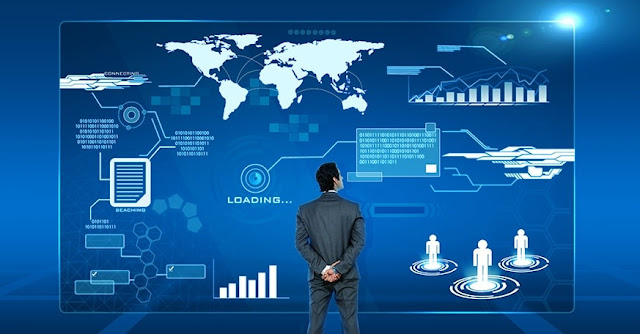Implementing IoT into Your Business: Benefits and Obstacles
As IoT solutions are emerging in SMEs, industries, and even local governments, the need for efficient security is set to grow. Organizations must raise their level of awareness in IoT security and the ability to mitigate risk.
IoT devices have quickly become a way to enhance our personal lives as well as improve organizational processes. The popularity of devices such as smartphones, watches, and voice assistants has a strong impact on organizations.
Connected devices have an impact on almost every business industry. While, these devices include machine learning for predictive maintenance, smart grid, sensors for shipping and logistics, automated manufacturing process, and connected HVAC (Heating, Venting, and Air Conditioning) systems, among others.
These devices allow data collection, exchange, and analysis, which can help businesses gain actionable insights to help them better understand their workflow. As per Gartner, the number of global IoT connections is expected to rise by approximately 25 billion by 2025.
Benefits of Implementing IoT in Different Sectors
IoT can strengthen a lot of business processes among various industries. Today, IoT systems can be used to introduce cost-saving and reduction in businesses. Moreover, unlock new revenue streams and make the production process transparent.
As per Kaspersky's survey, 61% of organizations currently use IoT platforms as business applications. More than this, 71% of the telecoms industry & IT use IoT, while 68% of the finance world and 66% of the utility & power industry use IoT.
Building Smart Cities
Smart Cities are one of the major sectors where IoT projects are run globally. In Smart cities, local authorities can utilize connected IoT devices to introduce street lights, smart parking, and smart utility meters for both offices & homes.
IoT systems have widened from simply running utility management for residents and lighting controls to critical services, such as transportation management, traffic control, and video surveillance.
5G Technology
The emergence and growth of 5G technology is not hidden from anyone. 5G penetrates high-speed wireless technology that enables transportation of large volumes of data faster while reducing the response time across mobile networks. All this allows wider use of IoT applications and the transfer of data to smart sensors.
China is one of the most advanced countries, estimates a time-frame rising to 2030 for the final developments of a country-wide 5G network.
Internet of things
Industrial Organization
Not just futuristic smart cities or 5G that have leverage IoT capabilities. With the help of intelligence and monitoring ability of IoT devices, industrial organizations can gain increased transparency and the opportunity for automation or predictive maintenance.
Manufacturing Organization
During the manufacturing process, sensors like beacons can be attached to machines. These sensors gather data, analysis to help manufacturing owners take action. The World Economic Forum recognized organizations considering 'beacons of technology and innovation in manufacturing'.
Most of them use IoT infrastructure to advance their business processes, which includes big data decision-making, democratized technology in new business models.
IoT smart metering enables run visible product lifecycle management to understand how each piece of manufacturing equipment is utilized. This data can offer new ways to manufacturing optimization, like detecting abnormal patterns in an asset's performance or establishing where productivity drops in workflows.
Challenges to Implementing IoT and Ways to Overcome
However, IoT is at a high level, but there are certain areas where IoT projects implementation requires greater efforts and attention.
Need for an Expert at the Junction
It's a challenge to implement IoT systems without specific expertise to handle internally. The external service or an expert can bring in knowledge and support to an organization and help them establish dedicated business processes.
As industrial manufacturing is diverse and customers look for specialists who know their industry works in each specific case as well as how to implement IoT to best fit the company and the solution needed.
IoT Data and Cloud Protection
The generated data from the IoT for the businesses can now store and process data in a more efficient and better way. Systems can get connected to the cloud, where data from different smart devices can be collected and passed for processing.
Public Cloud offers advantages for IoT applications to process data, which run on the cloud, to help transform gigabytes of telemetry into clear data visualizations showing device operations and efficiency.
The security of the cloud platform is a matter of management that can help reduce the risk of breaches and guarantee protection to the entire platform as well as security domain separation for customers and services.
Cybersecurity and Decision-Making
Not just IoT, entire IT security provision is as low as 43% of companies. One of the main obstacles when it comes to securing IoT and networks is the lack of decision-making power at the cybersecurity department level.
Insufficient cyber-protection maturity is connected with the management issues when the team does not have influencers on C-level decision-makers. This may lead to unreliable decisions for cybersecurity, like purchasing equipment of inadequate quality.
Conclusion -
IoT offers a huge potential that can transform manufacturing processes, business growth, and even cities where people live. Despite the benefits, the biggest challenge with IoT is cybersecurity risk, which is easy to overcome through dedicated IoT solution providers in USA that offer security policies within the IT security budget.



Comments
Post a Comment